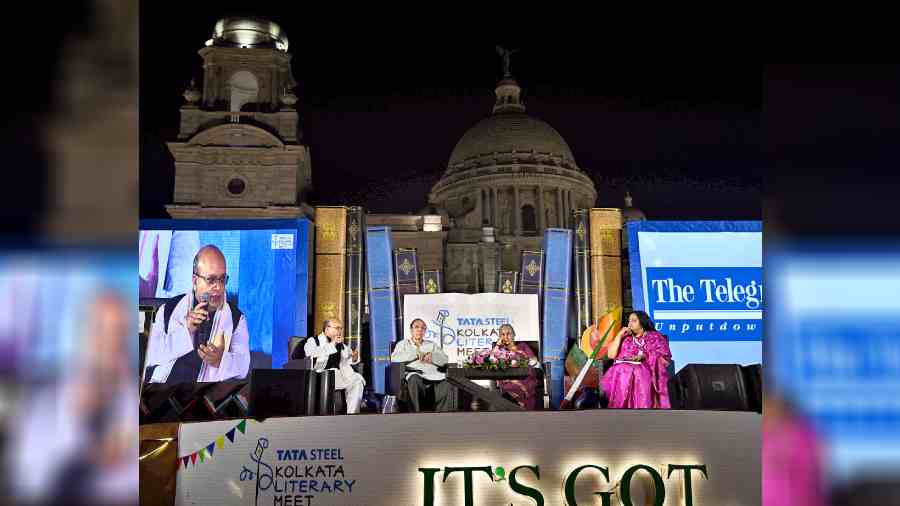In 1943, Netaji Subhas Chandra Bose had gone to a temple of the Chettiar community in Singapore with his comrades from other faiths to raise resources for the fight against the British.
Immediately after stepping out, he removed the tika that priests in the temple had applied on his forehead because he believed that those in public life could not associate themselves with any religious identity.
Now, people in public life believe in public display of religious identity to such an extent that what Bose exemplified has become non-existent.
Subhashini Ali, daughter of Lakshmi Sahgal, who was part of Bose’s Indian National Army (INA), referred to this contrast to highlight that the inclusive approach exhibited by Bose had been “junked altogether by those in public life who seek to appropriate Netaji”.
“This kind of very intolerant approach, this kind of public display of religious symbols by those in public life, is really something very shocking. And for those people to say they admire Netaji Subhas Chandra Bose, I think that is a real travesty and we should not believe in it,” Ali said at the Tata Steel Kolkata Literary Meet, in association with the Victoria Memorial Hall and The Telegraph, on Tuesday.
The day before, on Netaji’s birthday, RSS chief Mohan Bhagwat had spoken at a programme in Kolkata about what he believed an ideological parity between his organisation and Netaji.
Ali was discussing an English translation of a memoir on Netaji by Krishna Bose, an academic, thinker, social worker and a three-time parliamentarian who was married to Sisir Kumar Bose, Netaji’s nephew.
Sumantra Bose, a professor of international and comparative politics at the London School of Economics and Krishna’s son, edited and translated the memoir.
His brother Sugata Bose, who teaches history at Harvard University, and Ali were in conversation with Priyadarshinee Guha at the literary meet session.
Ali said the memoir on Netaji by Krishna Bose was replete with examples of what people in public life should and should not do.
“Netaji went to the temple (in Singapore) accompanied by his officers. At least three of whom were Muslims, I think. They went in there, they were welcomed and greeted with ‘tika’. As soon as they came outside the sanctum, he (Netaji) removed his ‘tika’ and said this has got nothing to do with the uniform. You can’t be in uniform and have symbols of any religion attached to you,” she said.
“I believe these are very important things to remember, especially today, when this kind of thinking, this kind of approach has become so very unusual and so very rare. Why? It should be part of what people in public life are all about. But now it has become the exception…. This kind of public display of religious symbols…. And for people to say they admire Netaji Subhas Chandra Bose, I think that is a real travesty.”
Ali, a former parliamentarian and a public figure herself, sought to underscore why she was more interested in this stand of Netaji, to dissociate himself from any religious identity.
“It’s what a person in public life should be like. That should be the ideal of people in public life, people who represent a large number of people. They should represent all of them. That is the example Netaji had set,” Ali said at the session.
Sugata Bose said Netaji believed that members of each religious community had “equal rights and equal respect”.
“In public, he never made a display of his spirituality. If he meditated, he meditated in private. He practised what he preached. He did not simply talk about it,” Sugata Bose said.
